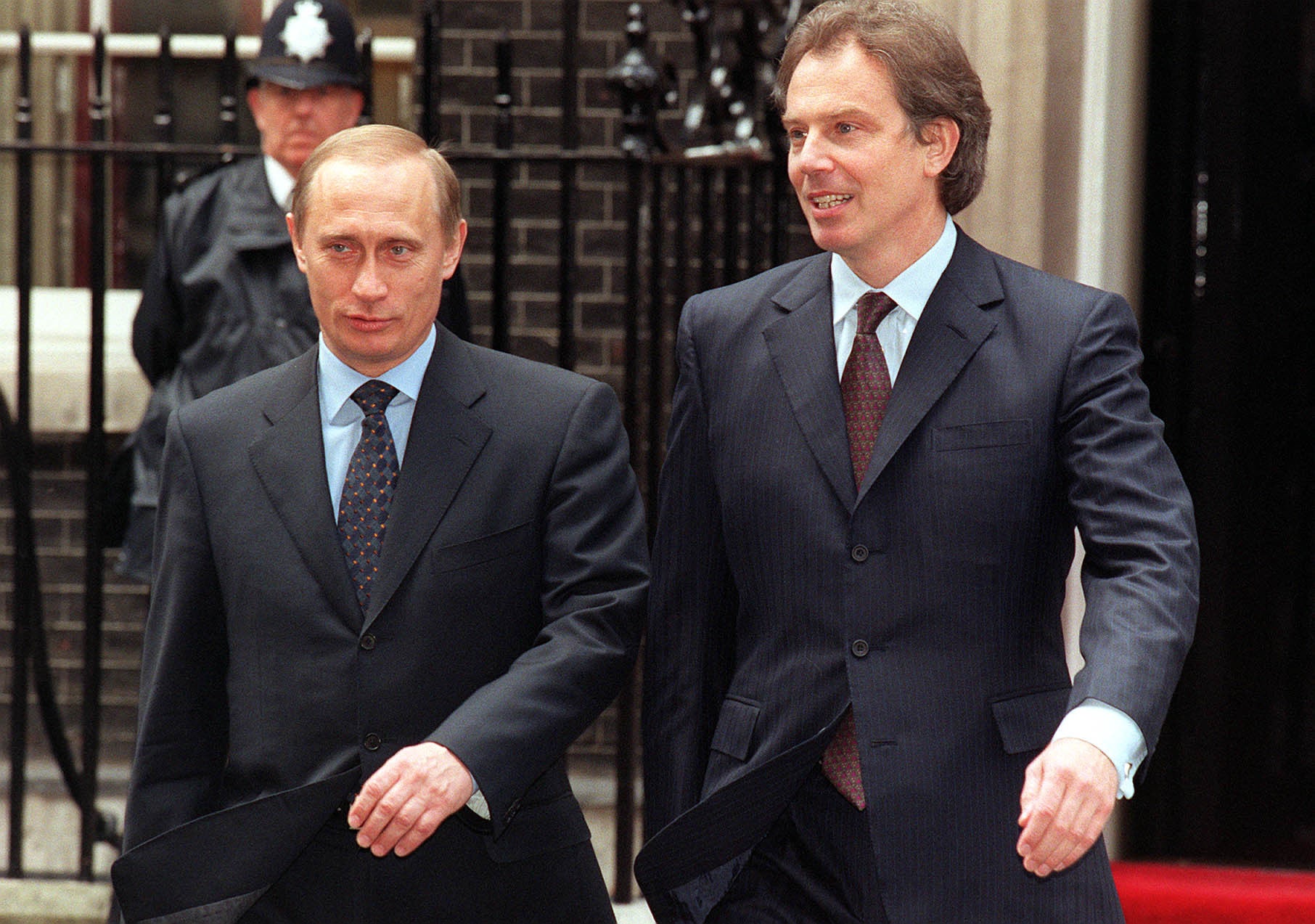Of course Tony Blair tried to bring Vladimir Putin into the liberal democratic fold
New releases from the National Archives remind us that the world was different in 2001, writes John Rentoul


It was not a secret that Tony Blair wanted to engage with Vladimir Putin when Putin was first elected leader of Russia in 1999. There was a minor controversy at the time, because Blair broke the convention against meeting foreign politicians during elections, and met Putin in Russia during the election campaign that he was expected to win.
Blair hoped that by establishing early good relations with the Russian prime minister, he could help bind the country into the liberal democratic international community. Given what has happened since, it is no surprise that some of the documents released today by the National Archives have attracted some headlines for the jarring contrast between the hopes of 2001 and the reality of Putin’s war of aggression in Ukraine today.
Yet the papers should also serve to remind us that Blair saw the dangers of Russian nationalism and was ahead of most other world leaders in trying to do something about them. Whereas the US and other countries tended to assume that Russia would adopt Western values and enrich itself by transitioning to a functioning market economy – as most of central and eastern Europe did – Blair warned that Putin was “a Russian patriot, acutely aware that Russia had lost its respect in the world”.
Blair’s proposal was that Russia should continue to be given “a position on the top table”, in order to try to break down the mythology that West-dominated global institutions were a conspiracy against it. Russia had been added to the G7, the group of seven biggest economies, to make it the G8 in 1998, when Boris Yeltsin was president; Blair wanted to continue that arrangement, ignoring Putin’s continuing engagement in spying and his support for Iran’s nuclear ambitions.
This attempt to embrace Putin involved other moral compromises, as Blair wrote in his memoir: “As prime minister, Putin had prosecuted the war in Chechnya with vigour and, some said, brutality. Though I understood the criticism, I was sympathetic to the fact that this was also a vicious secessionist movement with Islamic extremism at its core, so I understood the Russian perspective as well.”
In the end, though, Blair failed to understand – as most outsiders did – the depths of Russian irrationalism in which Putin was immersed. Blair quickly realised that none of Putin’s promises could be relied on, and in the Kosovo conflict of 2000 he led Nato in standing against Russian-backed Serbian nationalism, but Blair retained his characteristic self-belief, imagining that he could somehow persuade Putin to recognise that a more liberal Russia would be in his own interest.
It didn’t work, but it wasn’t wrong to try it. Putin was finally expelled from the G8 in 2014, after the invasion of Crimea, seven years after Blair had left office. And it may be that some of Putin’s more mystical ideas about “one Russia” stretching from the Baltic republics through Belarus and Ukraine took full form only recently. Maybe the idea, for instance, that Lenin made a mistake in allowing Ukraine to be a Soviet Socialist Republic, separate from the Russian Federation, had always been held in Putin’s heart when he was a KGB officer in the Soviet Union, but it seems more likely to be a recent rewriting of history.
The National Archive releases are a useful reminder that the world looked very different in 2001. The release of official documents has almost caught up with the shortening of the 30-year rule to a 20-year rule. Historians are now just 21 years behind the present day, but 21 years is a long time, and although Putin has been ruler of Russia throughout, he and the world have changed.
The documents also confirm what my colleagues at King’s College London and I have learned from the first releases from the Blair government: that it was more open than previous administrations and that, therefore, there is less and less new in the official papers. Most of what Blair and his ministers did was reported at the time or soon afterwards in an unprecedented gush of diaries (especially Alastair Campbell’s), memoirs and official inquiries (in particular into aspects of the Iraq war).
I didn’t know that Blair had compared Putin to Charles de Gaulle (“a similar mindset”) in one of his conversations with Dick Cheney, the US vice president. But the world knew that Blair hoped to bring Putin into the liberal democratic fold, because he said so, publicly, many times.



Join our commenting forum
Join thought-provoking conversations, follow other Independent readers and see their replies
Comments